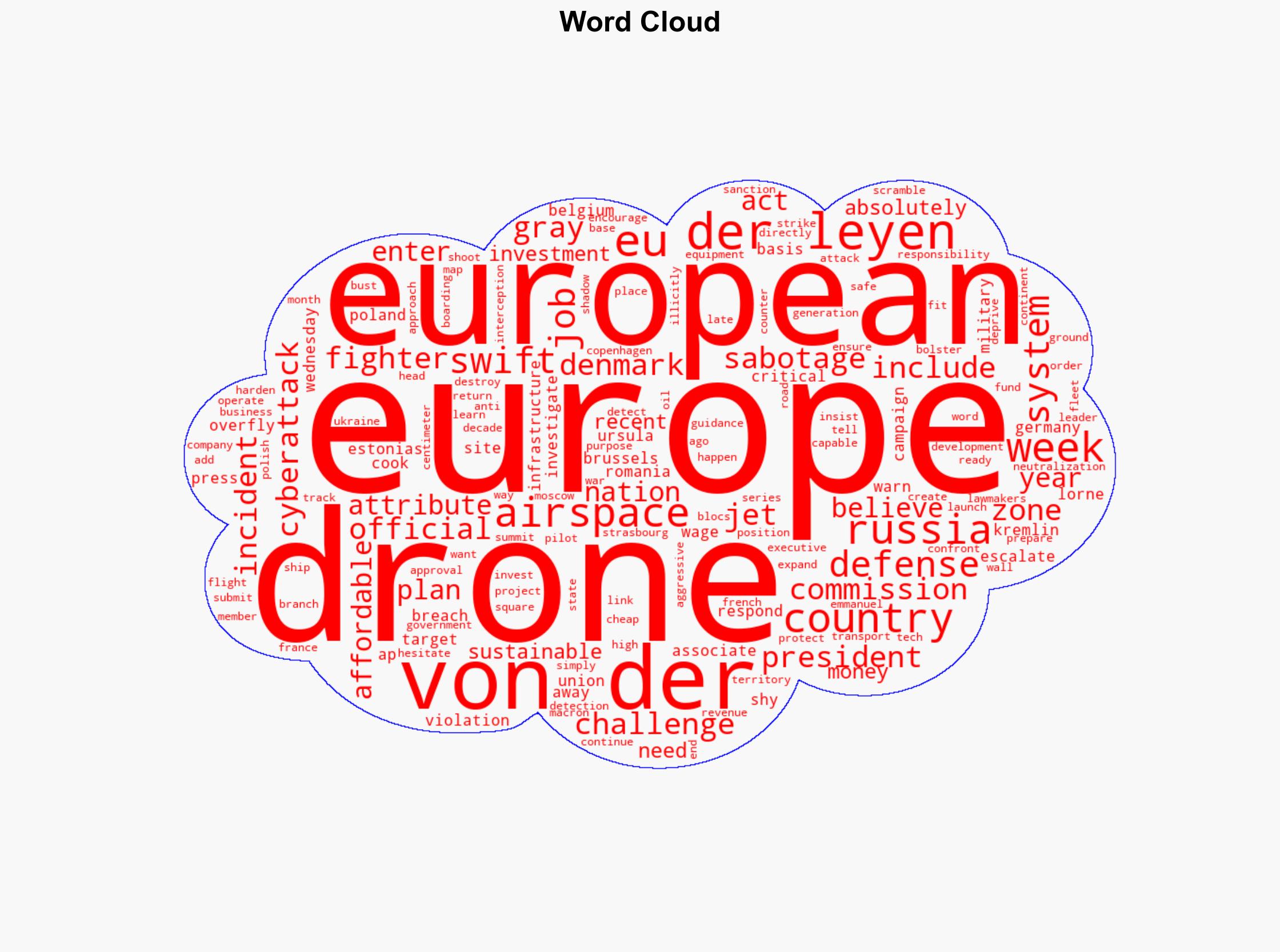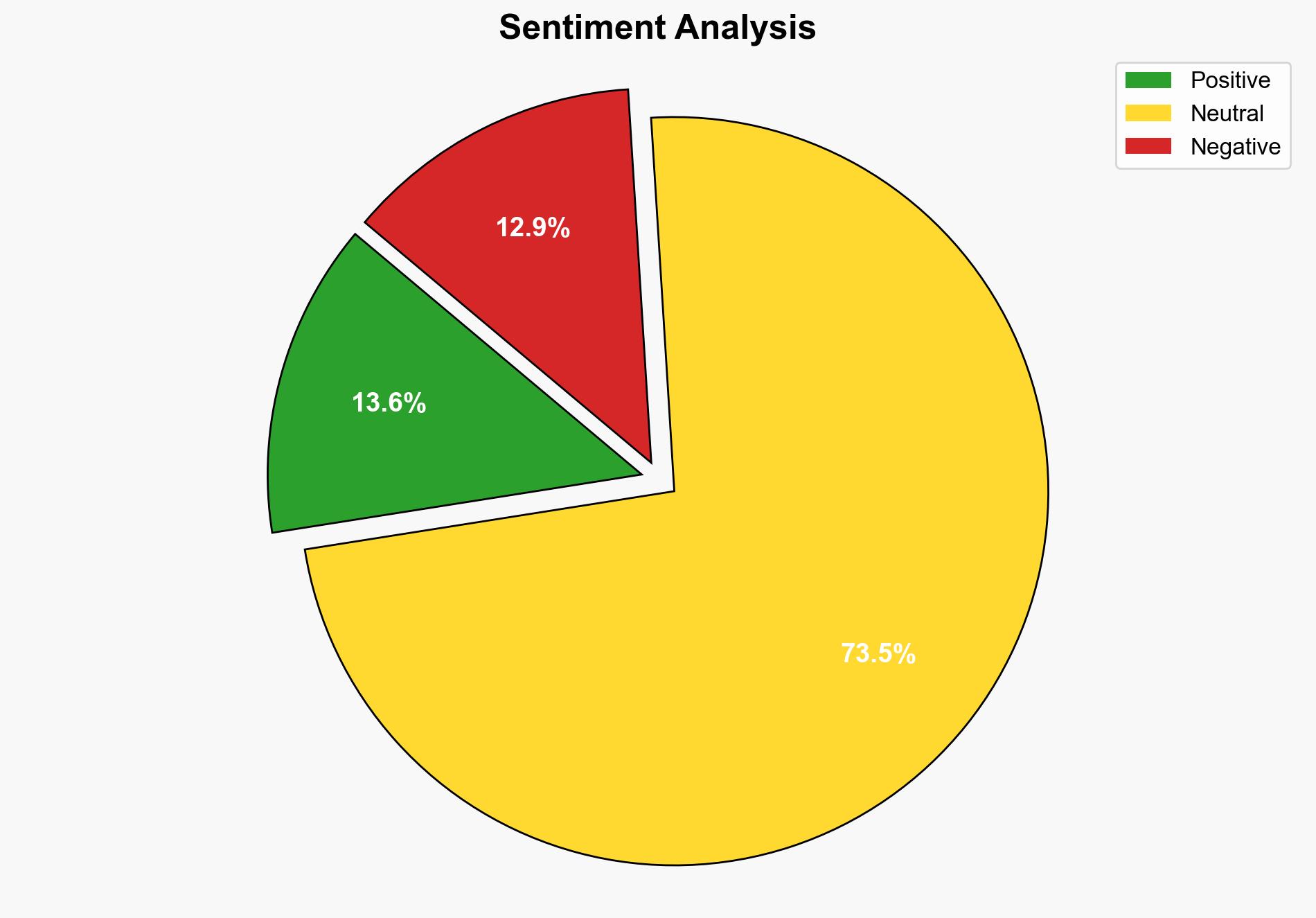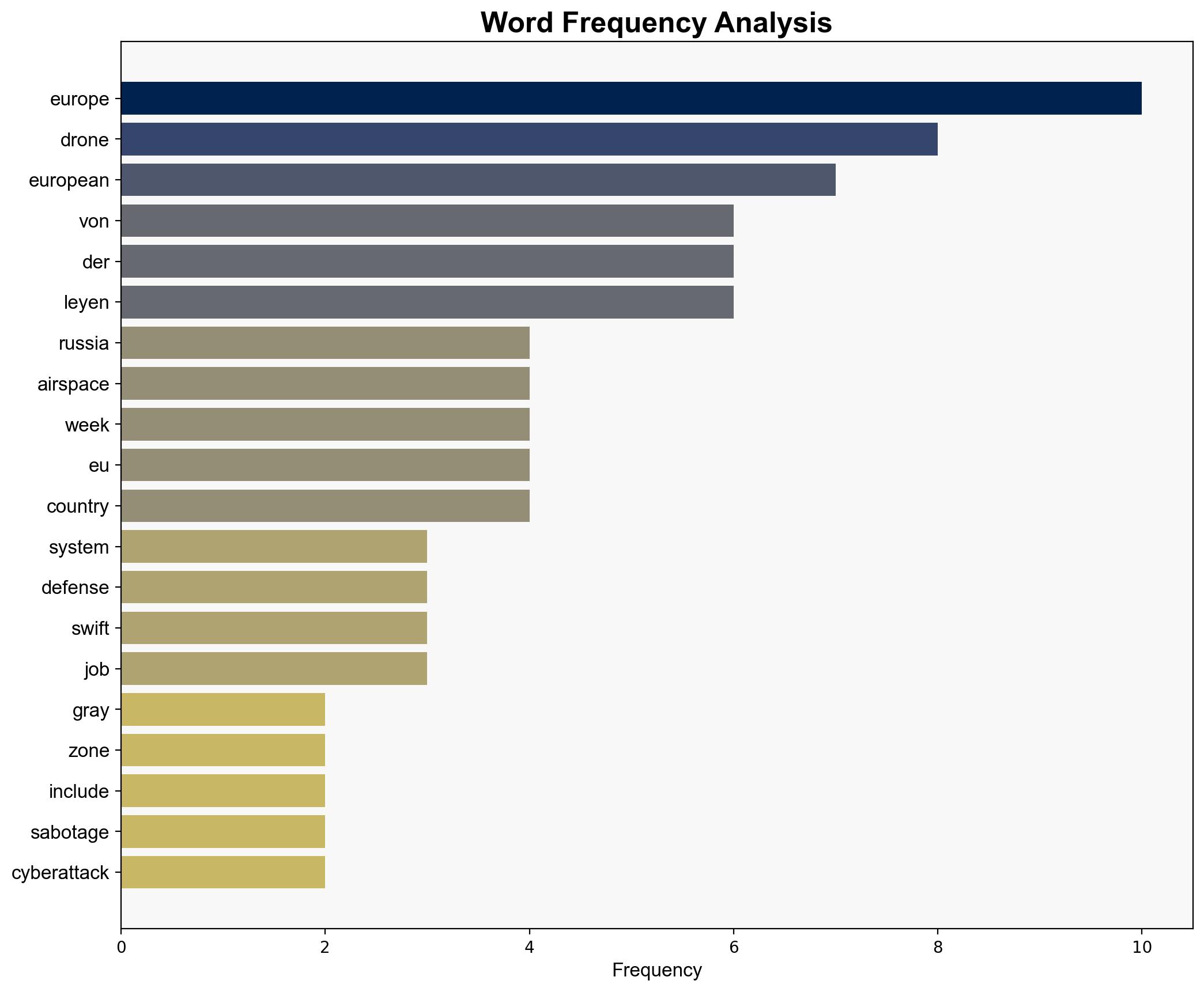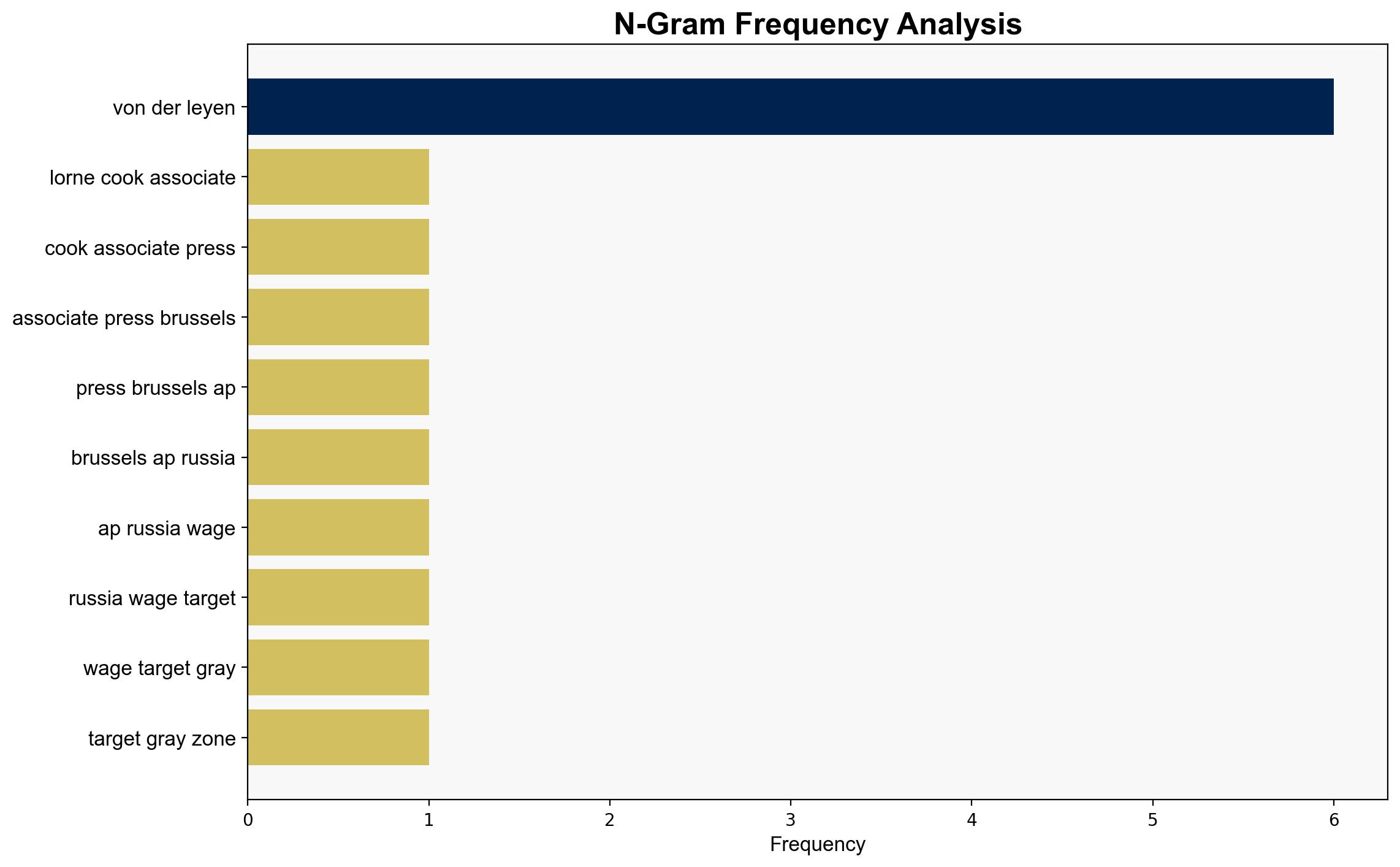EU chief says Russia is waging a gray zone campaign and Europe must meet the challenge – Boston Herald
Published on: 2025-10-08
Intelligence Report: EU chief says Russia is waging a gray zone campaign and Europe must meet the challenge – Boston Herald
1. BLUF (Bottom Line Up Front)
The European Union perceives a strategic threat from Russia’s gray zone activities, including airspace violations and cyberattacks. The most supported hypothesis is that Russia is intentionally testing European defenses to exploit vulnerabilities. Confidence level: Moderate. Recommended action: Strengthen EU defense capabilities and enhance intelligence-sharing mechanisms.
2. Competing Hypotheses
1. **Hypothesis A**: Russia is deliberately engaging in gray zone tactics to test and exploit European defense vulnerabilities, aiming to destabilize the EU and gain strategic advantages.
2. **Hypothesis B**: The incidents are isolated events not centrally coordinated by Russia, possibly involving non-state actors or rogue elements within Russia, leading to misattributed blame on the Kremlin.
Using Analysis of Competing Hypotheses (ACH), Hypothesis A is better supported due to the pattern of incidents across multiple EU countries and the strategic timing of these actions, coinciding with EU defense discussions.
3. Key Assumptions and Red Flags
– **Assumptions**: It is assumed that Russia has the capability and intent to conduct coordinated gray zone operations. The EU’s response is based on the assumption that these incidents are state-sponsored.
– **Red Flags**: Lack of direct evidence linking the Kremlin to specific incidents. Potential cognitive bias in attributing incidents to Russia without conclusive proof.
– **Blind Spots**: Insufficient exploration of alternative actors or motivations behind the incidents.
4. Implications and Strategic Risks
The continuation of gray zone activities could lead to increased tensions and potential military escalation. Economically, persistent threats may deter investment in affected regions. Cybersecurity risks could compromise critical infrastructure, while geopolitical instability might strain EU cohesion. The psychological impact includes heightened public fear and potential erosion of trust in government protection capabilities.
5. Recommendations and Outlook
- Enhance EU-wide defense systems, focusing on affordable, scalable anti-drone technologies.
- Increase intelligence-sharing and joint exercises among EU member states to improve readiness.
- Engage in diplomatic efforts to address and de-escalate tensions with Russia.
- Scenario Projections:
- Best: Successful deterrence through enhanced defense and diplomacy reduces gray zone activities.
- Worst: Escalation into open conflict due to miscalculation or provocation.
- Most Likely: Continued sporadic gray zone activities with gradual EU adaptation and response improvements.
6. Key Individuals and Entities
– Ursula von der Leyen: European Commission President
– Emmanuel Macron: French President
7. Thematic Tags
national security threats, cybersecurity, counter-terrorism, regional focus




